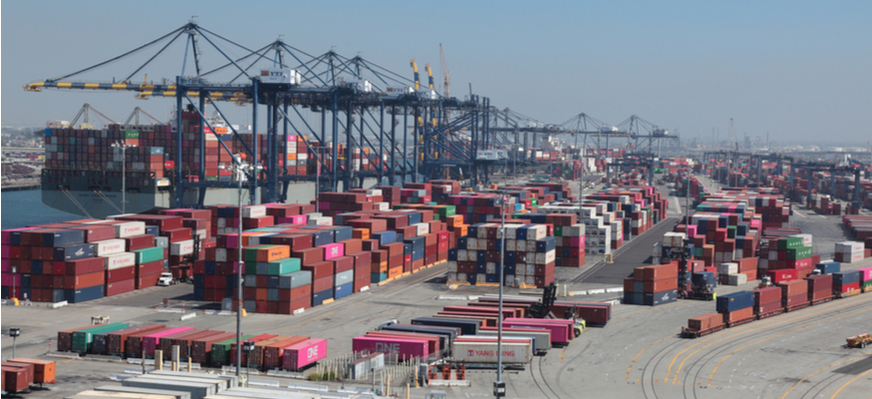If you have trouble finding Christmas presents or other goods over the next few months, you can thank the federal government.
In the midst of rapid inflation and continuing economic struggles, a record number of container ships are simply anchored off the west coast of Los Angeles waiting to get the “okay” to dock and unload.
Since the beginning of the COVID-19 crisis, some goods have become oddly limited. For weeks, goods like toilet paper and cleaning supplies were in high demand, but that quickly wore off.
Other materials have become very limited in the last year, such as the microchips used in automobiles, which is a driver of the surge in car prices. Certain foods have been in-and-out of stock at times as well.
The Port of Los Angeles is the largest port in the country, and Executive Director Gene Seroka said last week that there were 250,000 containers at the port waiting to get unloaded from ships, which is equivalent to about two weeks of work.
The backlog reportedly stems from businesses ordering more supplies to restock pandemic-depleted inventories and is expected to continue well into 2022.
One of the main problems, Seroka told Fox, is the trucker shortage. While vessel production is up 50% and dock workers are on the job six days a week, truckers and warehouse workers remain minimal.
“Only about half of those truckers registered to do business at the twin ports are coming to work at least once a week. We need more folks in that sector,” Seroka said. “They’ve left to go to package service and other segments of industry.”
America relies almost exclusively on Asia for all supplies, and the unreliable situation at-hand can be attributed to the federal government’s policies that encourage companies to export production for cheaper costs.
The North American Free Trade Agreement sparked massive exportation of production after it took effect in 1994 under President Bill Clinton. In 2001, China entered the World Trade Agreement, which furthered the exportation of U.S. manufacturing to countries that would work for extremely cheap costs.
The risks of relying heavily on foreign manufactured goods is evident today as supply chains become unreliable.
Furthermore, the disappointing jobs report last week showed only 194,000 added jobs to the economy in September. Continued unemployment benefits and large sums of pandemic relief money are both reflecting what extreme government intervention does: It results in a nation where citizens feel no desire or need to get a job.
Everyone loses when businesses – like shipping ports – are understaffed and cannot function properly. A chain reaction begins in all industries and economic uncertainty prevails.
A Convention of States can stop our reliance on the federal government and allow the U.S. and its people to take back economic independence.
Get involved and sign the petition below!


